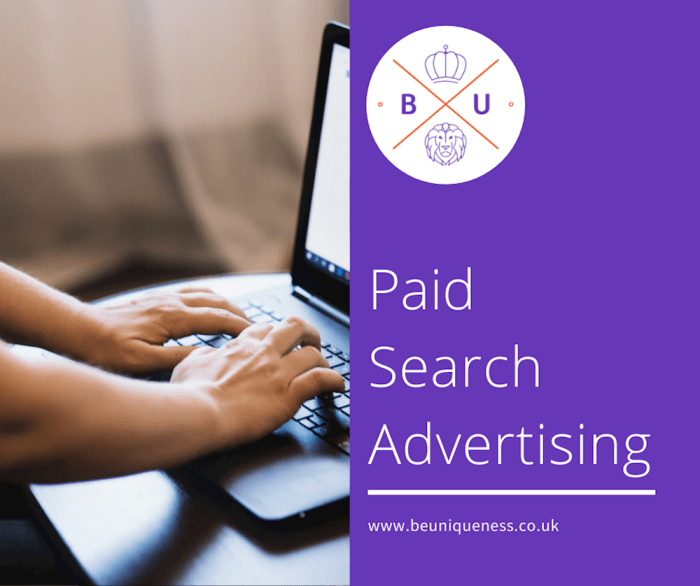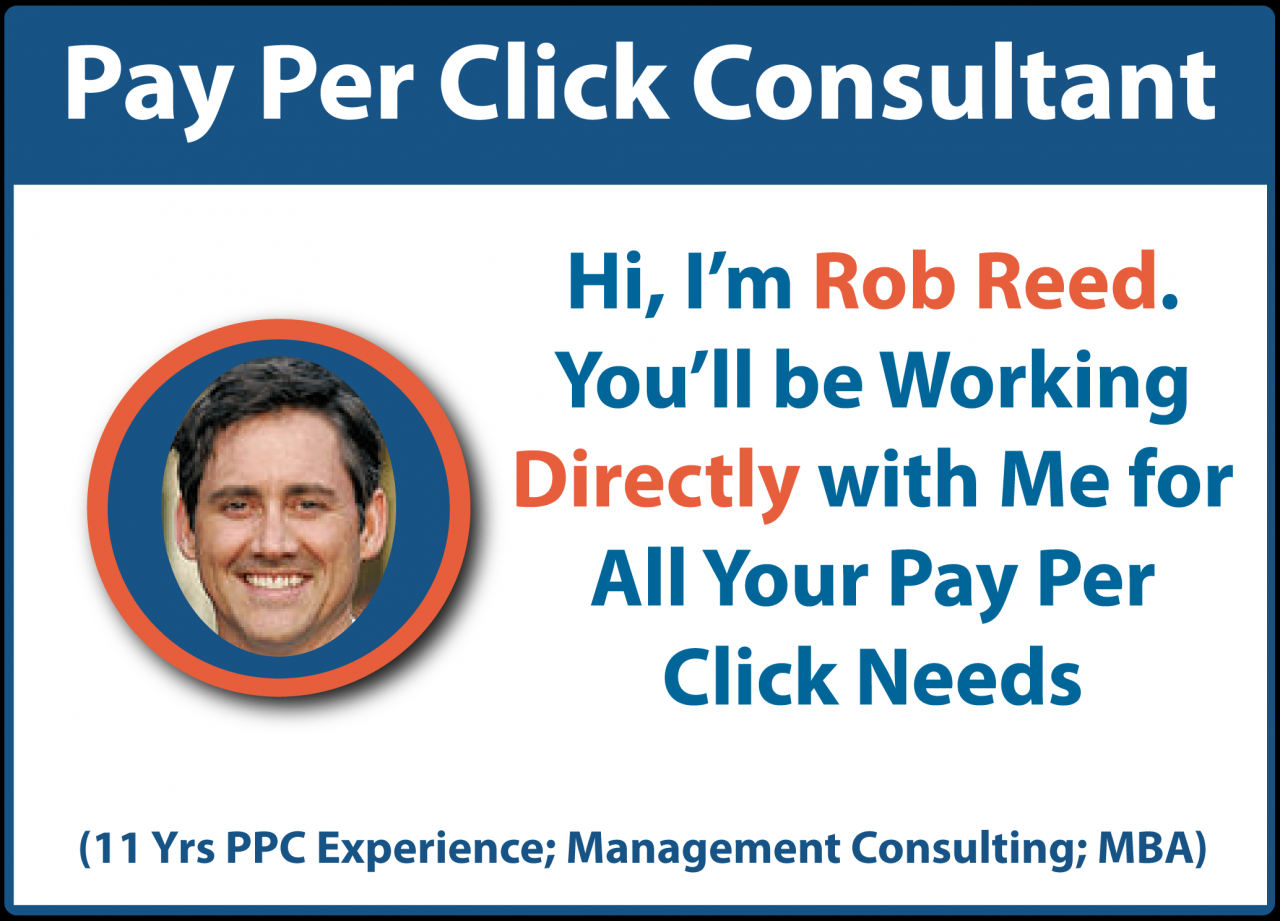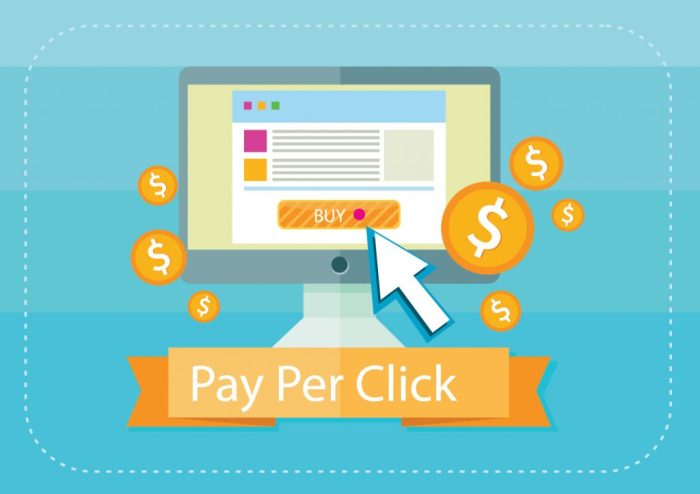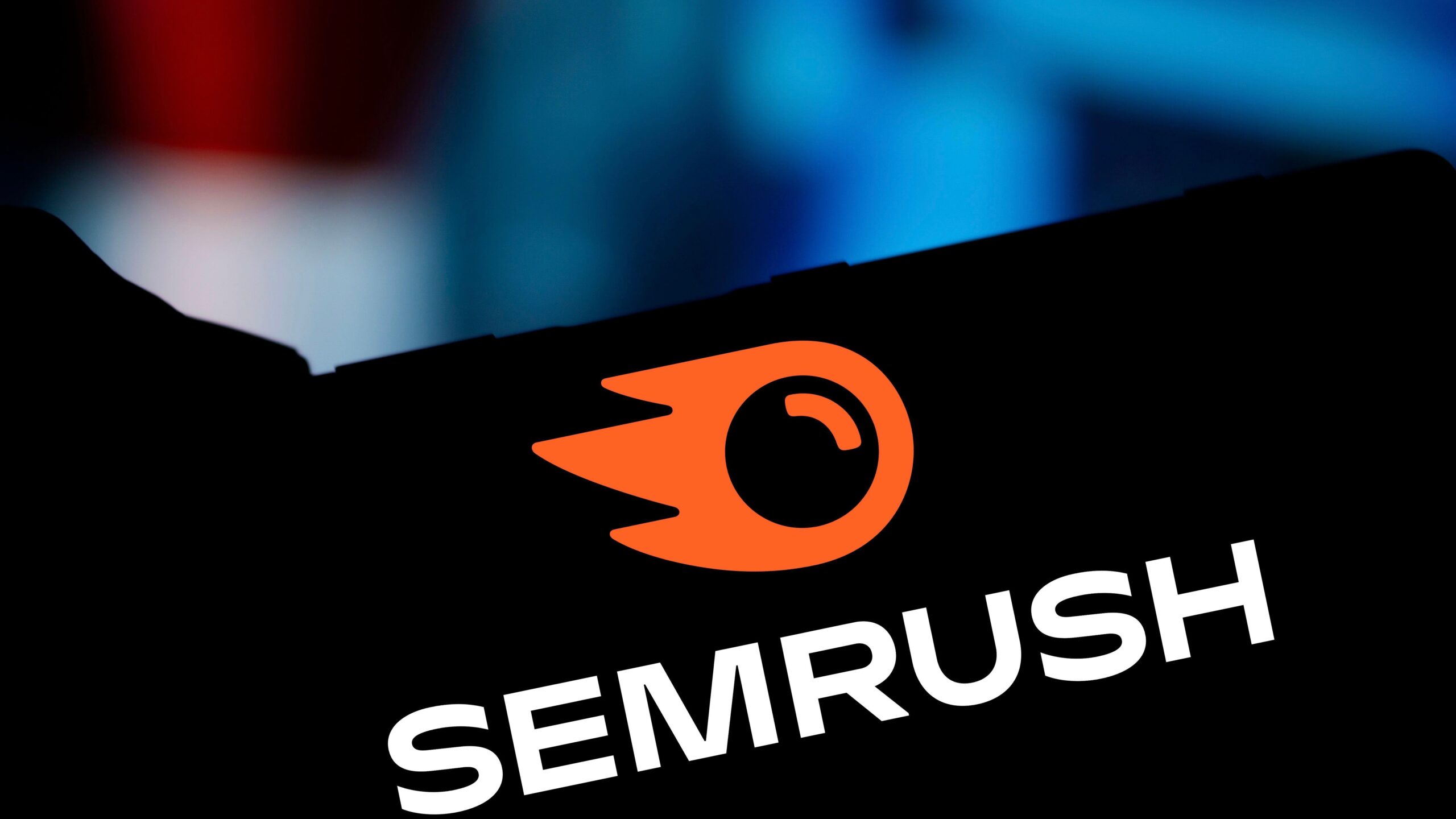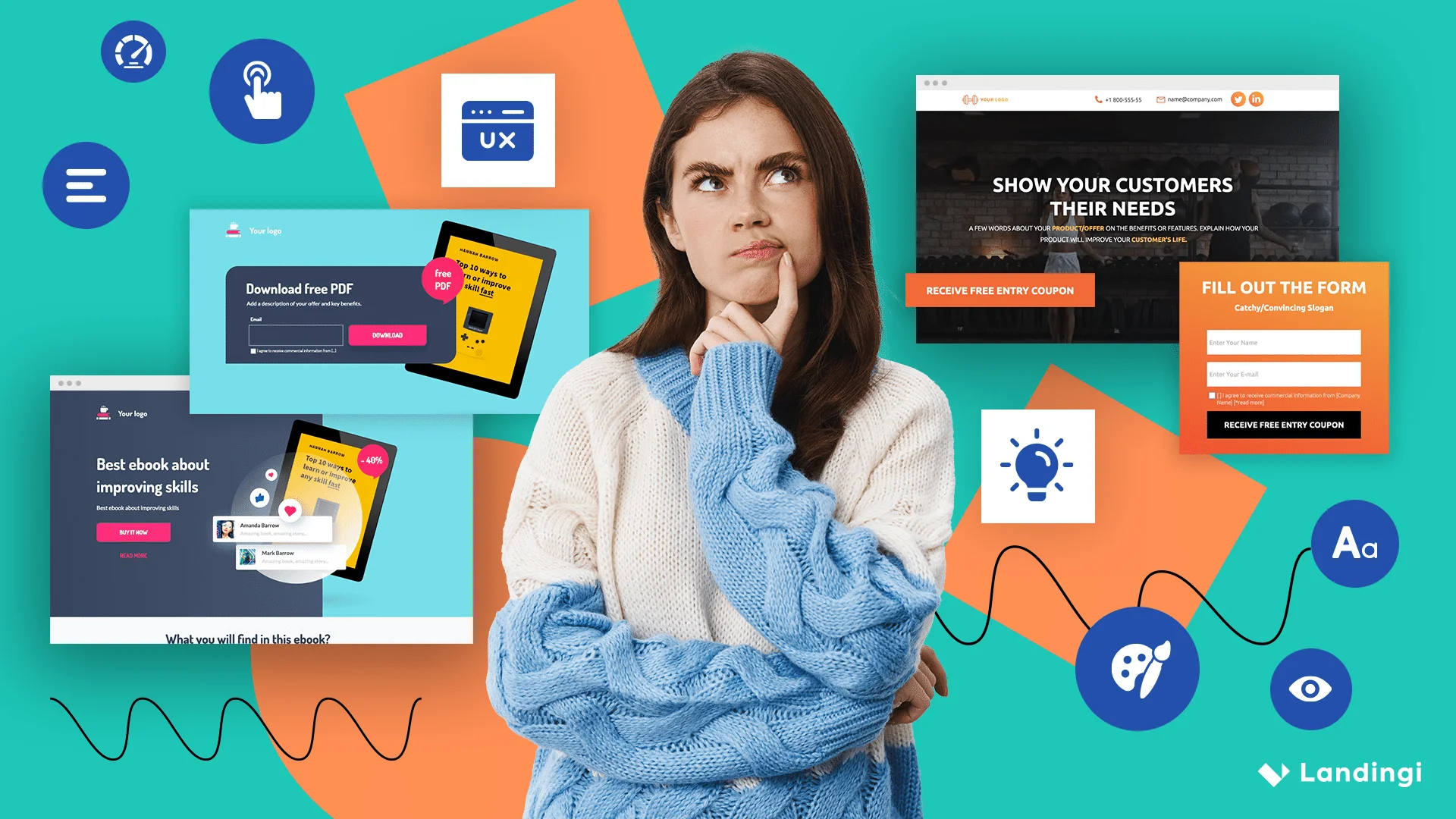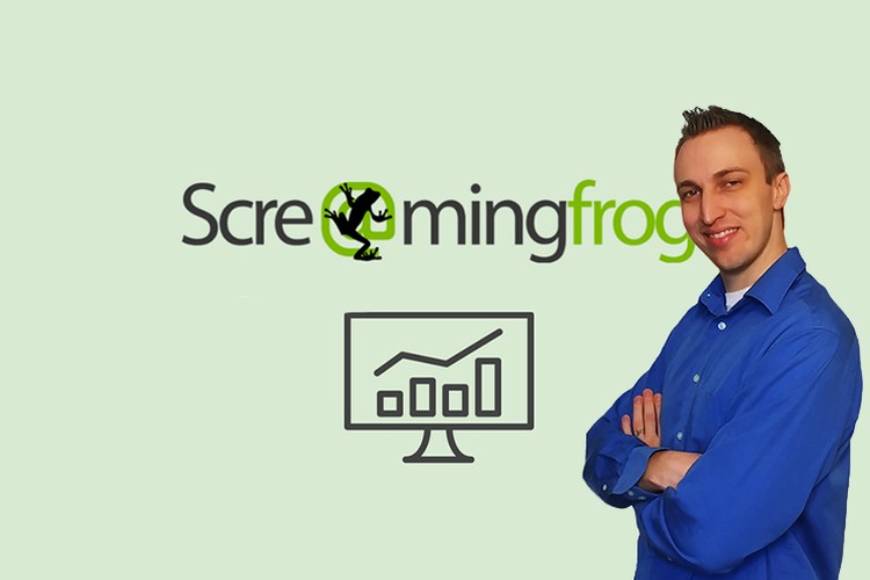Pay-per-click marketing companies are essential in today’s digital advertising landscape. They manage complex campaigns, optimize for maximum ROI, and navigate the ever-evolving world of online advertising.
This guide delves into the intricacies of PPC marketing, exploring the services offered by these companies, the factors to consider when choosing a partner, and the metrics for measuring success. We’ll examine various platforms, strategies, and case studies, providing valuable insights into this crucial aspect of modern business.
Introduction to Pay-Per-Click Marketing Companies
Pay-per-click marketing companies s a digital advertising model where advertisers pay a fee each time one of their ads is clicked. This contrasts with other advertising models, like print or television, where fees are often based on impressions or viewership. PPC campaigns are highly targeted and measurable, allowing businesses to precisely reach their desired audience and track the effectiveness of their advertising spend.
PPC marketing companies play a crucial role in the modern advertising landscape by managing and optimizing campaigns for their clients. These companies possess specialized expertise in various advertising platforms and tools, allowing businesses to maximize their return on investment (ROI) from digital advertising. Their services often extend beyond simply running ads, encompassing campaign strategy, research, and ongoing performance monitoring.
Definition of Pay-Per-Click Marketing
Pay-per-click marketing is a digital advertising model where advertisers pay a fee each time a user clicks on one of their ads. This model is widely used on search engines (like Google) and social media platforms. The cost of each click is determined through bidding, where advertisers compete for ad placement. The effectiveness of PPC marketing hinges on the ability to attract highly relevant traffic to the advertiser’s website.
Fundamental Role of PPC Marketing Companies
PPC marketing companies act as expert navigators in the complex world of online advertising. They handle the technical aspects of campaign setup, management, and optimization, freeing businesses to focus on core operations. Their deep understanding of advertising platforms, combined with analytical skills, ensures campaigns deliver maximum impact and measurable results.
Types of PPC Services Offered
PPC marketing companies provide a spectrum of services tailored to diverse business needs. These services include:
- Campaign Setup and Management: This encompasses setting up accounts, configuring ad groups, and managing. This is crucial for ensuring campaigns are structured effectively.
- Research and Selection: Identifying the most relevant and profitable segments for a specific campaign is a key service. This process significantly influences the quality and performance of the ads.
- Ad Copywriting and Optimization: Crafting compelling and persuasive ad copy is essential for attracting clicks and conversions. Companies can assist in this crucial aspect.
- Landing Page Optimization: Ensuring that the landing page aligns with the ad copy and user expectations is critical for a positive user experience. This service is a key factor in maximizing conversions.
- Performance Tracking and Reporting: Monitoring campaign performance, analyzing data, and providing comprehensive reports are vital for identifying areas of improvement and maintaining campaign efficiency.
Key Components of a Successful PPC Marketing Campaign
A successful PPC marketing campaign is built on a foundation of careful planning and execution. Key components include:
- Well-Defined Objectives: A campaign’s goals (e.g., brand awareness, lead generation, sales) must be clearly defined to ensure efforts are focused and measurable.
- Targeted Audience Research: Identifying the specific demographics, interests, and behaviors of the target audience allows for highly focused advertising.
- Compelling Ad Copy: Crafting concise, engaging, and persuasive ad copy is crucial for attracting clicks.
- Optimized Landing Pages: Landing pages should align with ad copy, providing a seamless user experience and encouraging conversions.
- Continuous Monitoring and Optimization: Regular analysis of campaign performance and adjustments to strategy are vital for maintaining efficiency and effectiveness.
PPC Advertising Platforms
Different platforms offer unique strengths and targeting options for PPC campaigns.
| Platform | Description |
|---|---|
| Google Ads | Dominant search engine advertising platform, offering comprehensive targeting options and vast reach. |
| Bing Ads | Provides an alternative platform to Google Ads, potentially offering lower competition for certain sectors. |
| Social Media Platforms (e.g., Facebook Ads, Instagram Ads) | Targeted advertising is based on user demographics, interests, and behaviors. |
| YouTube Ads | Video-based advertising allows for targeted video campaigns. |
Services Offered by PPC Marketing Companies
PPC marketing companies offer a range of services designed to help businesses maximize their return on investment (ROI) through paid online advertising. These services span from initial campaign setup to ongoing optimization and reporting, ensuring consistent performance and adaptation to market changes. Effective PPC management requires a deep understanding of various tools, strategies, and market dynamics.
PPC marketing companies typically provide a suite of services to optimize advertising campaigns, ranging from initial setup to continuous monitoring and adjustments. This holistic approach is crucial for achieving and maintaining desired results. Companies often specialize in specific niches or industries, which can be a deciding factor in choosing the right partner.
Key Services Provided
PPC marketing companies typically offer a range of services to help businesses optimize their online advertising campaigns. These services are crucial for maximizing return on investment (ROI) and achieving marketing objectives. Key services commonly include campaign setup, ongoing management, and meticulous optimization. Effective campaign management requires a thorough understanding of the target audience and the competitive landscape.
- Campaign Setup: This initial phase involves defining campaign goals, identifying target audiences, and selecting relevant. Companies conduct thorough research to ensure campaigns align with business objectives and are strategically positioned to attract the right audience. This often includes competitor analysis to understand the market landscape and develop effective strategies.
- Campaign Management: Ongoing management is essential for monitoring campaign performance and making necessary adjustments. This includes tracking key metrics, analyzing data, and making informed decisions to maintain optimal campaign efficiency. It often involves continuous testing and optimization of ad copy, landing pages, and targeting parameters.
- Campaign Optimization: Continuous monitoring and optimization are critical for maximizing campaign performance. This process involves analyzing campaign data to identify areas for improvement, testing new strategies, and adjusting bids and spending based on performance insights. A data-driven approach is crucial for identifying trends and adapting to market changes, which ensures that the campaign stays relevant and effective.
Expertise Levels in PPC Management
Effective PPC campaign management demands a diverse skill set. The required expertise varies based on the complexity of the campaign and the specific goals. General understanding of digital marketing principles is essential, but advanced skills in areas like A/B testing, data analysis, and market research are highly beneficial.
- Entry-Level: Companies with entry-level expertise focus on basic campaign setup and management, often relying on pre-set templates and guidelines. They may have limited experience with complex campaign optimization techniques.
- Mid-Level: Companies at this level possess a more in-depth understanding of PPC strategies and tools. They can create and manage more complex campaigns with a broader range of optimization techniques, including A/B testing and sophisticated targeting strategies.
- Advanced/Specialized: Companies with advanced expertise often focus on highly specialized areas like retargeting, dynamic search ads, or specific industry verticals. They possess a deep understanding of advanced tools and strategies, offering specialized services and tailored solutions.
Comparison of Services Across Companies
Different PPC marketing companies may offer varying service packages and pricing structures. Some companies focus on specific niches, while others offer a more generalized approach. The choice of a PPC marketing company depends on the specific needs and goals of the business. Factors like budget, campaign complexity, and industry specialization play a crucial role in determining the best fit.
Tools and Technologies Utilized
PPC marketing companies utilize various tools and technologies to manage and optimize campaigns effectively. These tools assist in tasks ranging from research to performance tracking and analysis. Sophisticated software enables data-driven decision-making and campaign adjustments for optimal results.
- Google Ads: The primary platform for most PPC campaigns, providing comprehensive tools for managing and optimizing ad campaigns.
- Microsoft Advertising: A competitor platform with its own set of tools and capabilities.
- Analytics Platforms (e.g., Google Analytics): Used for tracking website traffic and campaign performance.
- Research Tools: Essential for identifying relevant s for campaigns.
- A/B Testing Tools: Used to compare different versions of ads and landing pages to optimize performance.
PPC Marketing Strategies and Effectiveness
Different strategies can be employed for PPC campaigns, each with varying levels of effectiveness. A balanced approach that considers various strategies is often the most effective method. The choice of strategy depends on factors such as the target audience, budget, and campaign goals.
| Strategy | Effectiveness | Example |
|---|---|---|
| -Based Targeting | High | Targeting specific segments related to products or services. |
| Demographic Targeting | Moderate | Targeting specific demographics based on age, location, or interests. |
| Retargeting | High | Targeting users who have previously interacted with the website. |
| Remarketing | High | Targeting users who have shown interest in products or services. |
Choosing the Right PPC Marketing Company
Selecting the ideal Pay-Per-Click (PPC) marketing partner is crucial for maximizing your return on investment. A well-chosen company can significantly boost your online visibility and drive qualified leads, while a poor choice can waste valuable resources and hinder your growth. Careful consideration of various factors is essential to make an informed decision.
Criteria for Selecting the Best PPC Marketing Company
A successful PPC campaign hinges on a deep understanding of your business objectives and the intricacies of the digital landscape. Essential criteria for evaluating potential partners include demonstrable experience in your industry, proven track record of successful campaigns, and a commitment to transparent communication. Beyond these fundamental requirements, specific needs such as budget constraints and campaign goals should also be considered. This ensures that the selected company aligns with your overall marketing strategy and can deliver tailored solutions.
Evaluating Company Experience and Expertise
Assessing a PPC company’s experience and expertise involves examining their portfolio of past projects and case studies. Look for evidence of successful campaigns in similar industries to yours. A strong track record demonstrates their understanding of market trends and their ability to adapt strategies to achieve optimal results. The company’s team’s qualifications, certifications, and experience in PPC management are also important indicators of their competence. It is crucial to assess their knowledge of various PPC platforms, tools, and strategies to gauge their adaptability and ability to handle diverse campaign needs.
Importance of Transparency and Communication
Clear communication and transparency are paramount in a client-company relationship. A reliable partner will provide regular updates on campaign performance, explain their strategies, and proactively address any concerns. Transparency in pricing models, reporting methods, and the overall decision-making process fosters trust and allows for effective collaboration. Open communication channels ensure that both parties are aligned and working towards shared goals. Avoid companies that are opaque about their processes or methods.
Examples of Successful PPC Campaigns
Numerous successful PPC campaigns showcase the power of strategic implementation. For instance, a company specializing in e-commerce saw a 30% increase in conversion rates after implementing a targeted campaign focusing on high-intent s. Similarly, a software company using a highly segmented approach saw a 25% reduction in wasted ad spend by precisely targeting their ideal customer profile. These examples illustrate the positive impact of a well-executed PPC strategy.
Comparing Pricing Models and Packages
| Company | Pricing Model | Package A | Package B | Package C |
|---|---|---|---|---|
| PPC Agency X | Performance-based | $1,500/month | $2,500/month | $4,000/month |
| PPC Agency Y | Hourly Rate | $50/hour | $75/hour | $100/hour |
| PPC Agency Z | Fixed-fee | $5,000/campaign | $8,000/campaign | $12,000/campaign |
Different pricing models are employed by various PPC marketing companies. Understanding these models is crucial for choosing a company that aligns with your budget. Some companies offer performance-based models, where payment is tied to campaign outcomes. Others may use hourly rates or fixed-fee packages. A comprehensive comparison of pricing structures allows you to select the most cost-effective option while ensuring a high-quality service.
Measuring the Success of PPC Campaigns
Understanding the performance of your Pay-Per-Click (PPC) campaigns is crucial for optimizing ROI and achieving your marketing objectives. A robust system for tracking and analyzing data allows for informed adjustments and ensures you’re getting the most out of your advertising budget. Effective campaign management hinges on the ability to measure key performance indicators (KPIs) and make data-driven decisions.
Analyzing PPC campaign performance requires a deep understanding of the data being collected. Key performance indicators (KPIs) provide a clear picture of campaign effectiveness. By monitoring and evaluating these metrics, businesses can identify areas for improvement and refine their strategies for better results. This continuous monitoring allows for adaptation and optimization, leading to a more efficient and profitable PPC strategy.
Key Performance Indicators (KPIs)
A comprehensive suite of KPIs provides a holistic view of campaign performance. These metrics cover various aspects, from ad engagement to conversion rates. Tracking these metrics helps to determine which aspects of the campaign are performing well and which require attention. Understanding the relationships between these metrics is critical for making informed decisions.
Tracking and Analyzing Campaign Performance Data
Data tracking and analysis are fundamental to optimizing PPC campaigns. This involves using tools and platforms that collect and process data from various sources. The data collected should be organized and presented in a clear and concise manner, enabling quick identification of trends and patterns. This detailed analysis allows for strategic adjustments to improve campaign performance.
Continuous Monitoring and Optimization
Regular monitoring of PPC campaign performance is essential for achieving optimal results. Continuous analysis allows for timely adjustments to strategies and budgets, adapting to changing market dynamics and consumer behavior. This ongoing optimization process ensures that campaigns remain relevant and effective over time.
Examples of Successful PPC Campaign Analysis and Reporting
A successful PPC campaign analysis and reporting process involves a detailed examination of various metrics, identifying trends and patterns. For instance, if a particular campaign consistently generates high click-through rates but low conversion rates, the campaign manager can explore reasons for this disparity. This could include a mismatch between the ad copy and the landing page or a need for better targeting. A well-structured report will clearly articulate the performance of each aspect of the campaign, highlighting both strengths and areas for improvement. This allows for a data-driven approach to optimize future campaigns.
PPC Campaign ROI Evaluation Metrics
| Metric | Description | Formula (if applicable) | Importance |
|---|---|---|---|
| Click-Through Rate (CTR) | The percentage of people who see your ad and click on it. | (Clicks / Impressions) * 100 | High CTR indicates a compelling ad and relevant targeting. |
| Conversion Rate | Percentage of visitors who complete a desired action (e.g., purchase, signup). | (Conversions / Clicks) * 100 | High conversion rates indicate effective landing pages and targeted ads. |
| Cost Per Click (CPC) | The amount you pay each time someone clicks on your ad. | Total Cost / Total Clicks | A key metric for managing your budget and ensuring profitability. |
| Cost Per Acquisition (CPA) | The average cost of acquiring a customer. | Total Cost / Total Conversions | Essential for evaluating the profitability of your campaign. |
| Return on Ad Spend (ROAS) | The revenue generated for every dollar spent on advertising. | (Revenue / Ad Spend) * 100 | A crucial metric for evaluating overall campaign profitability. |
Industry Trends and Future of PPC Marketing Companies
The digital marketing landscape is constantly evolving, and pay-per-click (PPC) marketing is no exception. Emerging technologies and changing consumer behavior are reshaping the role of PPC marketing companies, demanding adaptation and innovation. This evolution is driven by a need to deliver more targeted, efficient, and effective campaigns.
Emerging Trends in PPC Marketing
Automation and artificial intelligence (AI) are transforming PPC marketing. Sophisticated algorithms can analyze vast amounts of data, identify patterns, and optimize campaigns in real-time. This leads to more precise targeting, higher conversion rates, and significant cost savings. AI-powered tools can automate tasks like research, ad copy creation, and bidding strategies, freeing up PPC specialists to focus on higher-level strategic decisions. The result is a more streamlined and efficient process for managing PPC campaigns.
Impact on Services Offered by PPC Marketing Companies
The rise of automation necessitates a shift in the services offered by PPC marketing companies. Instead of simply managing campaigns, companies are now expected to provide expert guidance and strategic direction in leveraging these automated tools. This includes training personnel on new platforms and algorithms, developing data-driven strategies, and integrating automation seamlessly into existing workflows. The focus has shifted from manual tasks to data analysis, strategy, and overall campaign performance optimization.
Evolving Role of PPC Companies in the Digital Marketing Landscape
PPC marketing companies are increasingly becoming strategic partners to businesses, not just vendors. Their role extends beyond campaign management to encompass comprehensive digital marketing strategies. They are integrating PPC with other digital marketing channels, such as search engine optimization, social media marketing, and email marketing, to create holistic campaigns. Furthermore, they are focusing on data-driven insights and performance analysis to provide actionable recommendations for sustained growth and success.
Future Predictions and Projections for PPC Marketing Companies
The future of PPC marketing companies is tied to the ongoing development of AI and automation. Companies that adapt quickly to these changes and invest in training and new tools will thrive. Those who remain focused on outdated methods risk falling behind. Successful companies will be those that can effectively integrate automation into their workflows, use AI for predictive analytics, and leverage data to provide comprehensive digital marketing strategies. For example, Google Ads is constantly evolving its platform with new features and tools. PPC marketing companies that stay abreast of these changes and provide training and support to their clients will maintain a competitive edge.
Projected Growth and Evolution of Different PPC Platforms
The evolution of PPC platforms is influenced by advancements in technology and evolving user needs. Adaptability to emerging trends, such as AI-driven optimization and seamless integration with other marketing channels, will be key for platform success. A crucial aspect is the development of user-friendly interfaces that can be easily understood and used by diverse clients, regardless of their technical expertise.
| PPC Platform | Projected Growth Areas | Evolutionary Trends |
|---|---|---|
| Google Ads | Enhanced automation features, integration with other Google services, and deeper AI-driven insights | Increased emphasis on performance-based marketing, personalized advertising, and sophisticated targeting |
| Microsoft Ads | Improved targeting capabilities, stronger integration with other Microsoft products, enhanced analytics tools | Expanding beyond search to include display and video advertising, integration with other marketing channels |
| Bing Ads | Enhanced integration with other Bing services, more sophisticated targeting options, focus on data-driven optimization. | Increased use of AI-powered tools for ad optimization and automated bidding strategies |
Case Studies of PPC Campaigns

Source: torontosom.ca
Pay-per-click (PPC) campaigns can significantly impact a business’s bottom line. Successful campaigns drive traffic, generate leads, and boost sales. Conversely, poorly executed campaigns can waste resources and yield disappointing results. Analyzing both successful and failed campaigns provides valuable insights for optimizing future strategies.
A Successful PPC Campaign Example
A major online retailer, “E-Commerce Solutions,” aimed to increase sales of its winter clothing line during the holiday season. Their PPC campaign focused on targeted keywords related to winter apparel, including specific styles and colors. Pay-per-click marketing companies. They used dynamic search ads, allowing ads to adapt to user searches in real-time. The campaign also incorporated retargeting ads, displaying products to users who had previously visited the site but hadn’t made a purchase. The results were impressive: a 25% increase in sales of winter clothing compared to the previous year’s holiday season, with a significant return on investment (ROI).
Analyzing a Failed PPC Campaign
A local bakery, “Sweet Treats,” launched a PPC campaign to attract customers. Their strategy was broad, targeting s like “bakery,” “cakes,” and “pastries” without sufficient geographical targeting. Pay-per-click marketing companies. This resulted in a high volume of irrelevant clicks from users outside the bakery’s service area. Furthermore, the ad copy lacked specific calls to action and compelling offers. The result was a low conversion rate and negative ROI. Lessons learned include the importance of precise targeting, compelling ad copy, and clear calls to action.
PPC Campaigns and Business Objectives
PPC campaigns can effectively support various business objectives. For instance, a company aiming to increase brand awareness could use broad s and focus on ad copy that highlights brand values and key differentiators. Similarly, a company aiming to generate leads could use landing pages designed specifically to collect contact information and provide valuable resources.
Different PPC Campaign Structures
PPC campaigns can be structured in various ways, including:
- Search campaigns: These campaigns target users actively searching for specific products or services. They often utilize search and bidding strategies to ensure ads appear prominently in search results.
- Display campaigns: These campaigns target users across various websites and apps, using visual ads and targeting options to reach specific audiences. Retargeting is a crucial element of display campaigns.
- Shopping campaigns: These campaigns showcase product listings directly within search results or on shopping comparison sites. They are ideal for e-commerce businesses looking to highlight products and drive conversions.
- Video campaigns: These campaigns utilize video ads on platforms like YouTube, targeting audiences based on interests and demographics. They can effectively engage viewers and drive brand awareness.
Impact of PPC Strategies on Different Industries
The effectiveness of PPC strategies varies across industries. Factors like competition, target audience behavior, and product complexity play a significant role.
| Industry | PPC Strategy | Impact |
|---|---|---|
| E-commerce | Shopping campaigns, retargeting | High conversion rates, increased sales |
| Real estate | Location-based targeting -focused campaigns | High lead generation, increased property viewings |
| Financial services | Targeted landing pages with specific offers | Lead generation, increased applications |
| Travel | Location-based targeting, dynamic search ads | High booking rates, increased customer acquisition |
Comparison of Different PPC Platforms
Different PPC platforms cater to diverse marketing needs and target audiences. Understanding the nuances of each platform is crucial for achieving optimal results. This comparison highlights the strengths and weaknesses of popular platforms like Google Ads, Bing Ads, and social media platforms, providing insights into their respective target audiences and successful campaign examples.
Key Differences Across Platforms
Various PPC platforms offer distinct advantages and disadvantages, impacting campaign performance. Understanding these differences allows marketers to strategically allocate resources and optimize campaign effectiveness. Each platform possesses unique characteristics in terms of targeting capabilities, ad formats, and reporting mechanisms.
Google Ads
Google Ads, a leading platform, boasts a vast reach and precise targeting options. Its extensive network of websites and apps ensures broad exposure to potential customers. Pay-per-click marketing companies. The platform excels in reaching users actively searching for products and services, making it a powerhouse for search-based marketing. A successful Google Ads campaign often focuses on highly specific and detailed targeting criteria. Pay-per-click marketing companies. For example, a clothing retailer might run targeted campaigns focusing on “men’s winter jackets” or “women’s designer handbags,” reaching a highly engaged audience actively searching for these products. A weakness is the high competition for certain services, necessitating a well-structured bidding strategy and meticulous management.
Bing Ads
Bing Ads, a competitor to Google Ads, offers a cost-effective alternative for reaching a broader audience. Its strength lies in reaching users who might not be actively searching on Google, expanding reach to a different segment of the market. Bing Ads can be a valuable complement to Google Ads, providing opportunities to capture a wider audience at a lower cost. A successful campaign on Bing Ads often focuses on a balance between broader targeting and a competitive bidding strategy. For example, a small business owner might find success with Bing Ads campaigns targeting niches and localized searches.
Social Media Platforms (e.g., Facebook, Instagram, Twitter)
Social media platforms offer unique advantages in reaching specific demographics and driving engagement. Pay-per-click marketing companies. These platforms provide the capability to tailor campaigns to user interests, behaviors, and demographics, enabling highly targeted advertising. This level of personalization allows for greater campaign control, ensuring ads reach the right audience. A successful social media campaign might leverage visually engaging ad formats and interactive content to maximize engagement. Pay-per-click marketing companies. For example, a beauty brand could run targeted campaigns on Instagram featuring influencer collaborations and user-generated content to resonate with its target demographic. A key weakness is the reliance on the platform’s algorithm and the need to adapt to evolving platform updates.
Comparison Table: Ad Formats Across Platforms
| Platform | Ad Formats |
|---|---|
| Google Ads | Search ads, display ads, video ads, shopping ads, app ads |
| Bing Ads | Search ads, display ads, video ads, shopping ads |
| Facebook Ads | Image ads, video ads, carousel ads, collection ads, lead ads, and story ads |
| Instagram Ads | Image ads, video ads, carousel ads, stories ads, shopping ads, Reels ads |
| Twitter Ads | Promoted Tweets, promoted accounts, promoted trends, promoted videos |
Ethical Considerations in PPC Marketing: Pay-Per-Click Marketing Companies</h2>
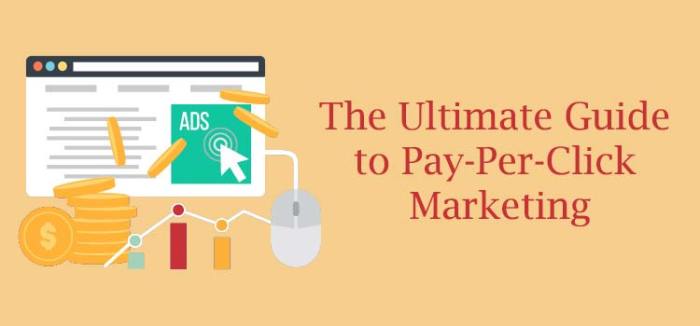
Source: hopinfirst.com
Pay-per-click (PPC) marketing, while a powerful tool for driving traffic and sales, necessitates a strong ethical framework. Companies must prioritize transparency, accuracy, and consumer well-being in their advertising campaigns to maintain trust and avoid potential legal repercussions. Unethical practices can severely damage a company’s reputation and erode consumer confidence.
Potential Risks of Deceptive Advertising
Deceptive or misleading advertising in PPC campaigns can lead to significant repercussions. Pay-per-click marketing company. False or misleading claims about products or services can damage a company’s reputation and result in legal action. Misrepresenting features, benefits, or pricing can deceive consumers, leading to dissatisfaction and potential refunds or legal complaints. This includes using misleading statements, creating deceptive landing pages, or exaggerating product capabilities. Ultimately, deceptive practices can lead to a loss of trust in the brand and potentially result in financial penalties.
Importance of Adherence to Regulations and Guidelines
Pay-per-click marketing companies. Adhering to advertising regulations and guidelines is crucial for ethical PPC marketing. Companies must ensure their ads comply with industry standards and applicable laws, such as those related to consumer protection and fair advertising practices. Failing to comply with these regulations can result in penalties, fines, or legal action. Understanding and following relevant advertising standards, including those concerning truthfulness, accuracy, and clarity, is essential for maintaining ethical conduct. PPC marketing campaigns must be consistent with the rules and regulations of the specific platforms utilized.
Ethical Guidelines and Best Practices
| Ethical Guideline | Best Practice |
|---|---|
| Transparency | Disclose sponsored content and avoid ambiguity in advertising copy. Disclose any affiliations or partnerships relevant to the advertised product or service. |
| Accuracy | Ensure all claims made in ads are accurate and verifiable. Avoid exaggerating or making unsubstantiated statements. |
| Relevance | Use and targeting methods that are relevant to the advertised product or service. Avoid clickbait tactics or misleading language. |
| Fairness | Avoid creating ads that could potentially mislead or harm consumers. Maintain a balance between promotion and transparency. |
| Respect | Respect the privacy and data of consumers involved in PPC campaigns. Adhere to relevant data protection regulations. |
Final Thoughts
In conclusion, understanding pay-per-click marketing companies is vital for any business looking to thrive in the digital realm. Choosing the right partner, utilizing effective strategies, and meticulously tracking results are key to maximizing returns. The future of PPC is bright, driven by innovation and automation, and businesses that adapt will undoubtedly see substantial growth.


